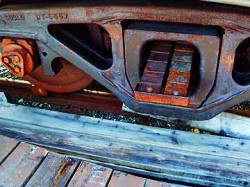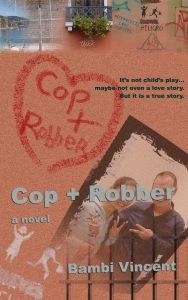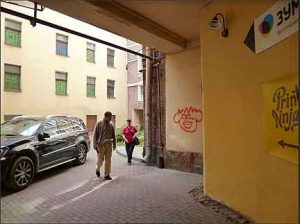Atul and Smriti Shah experienced it first-hand. “It happened during the night,” they concluded. “The entire compartment was sprayed with some sort of gas that knocked us out. Then our suitcase was slowly extracted from under our seat, the lock twisted loose and, with all the time in the world, the suitcase was looted.”
Atul and Smriti live with their small daughters in Mumbai, India, where railway is the customary way to crisscross the country. For the occasion of a relative’s marriage, the family traveled to the town of Kanpur, in Uttar Pradesh. As tradition dictates, they brought along their finest clothes and jewelry to wear to the many matrimonial celebrations and ceremonies. As a high-caste woman from a wealthy family, now married to a successful businessman, Smriti carried an enviable display of gold and diamonds.
“She had diamonds on her fingers and in her nose and ears,” Atul explained with pride, “and gold bangles and necklaces. Also, she wore the good-luck vermilion mark on her forehead that Indians always wear when traveling away from home.”
After the wedding and family visits, the Shahs boarded the train for the twenty-hour journey home. They had one suitcase, but it was a large one: fifty kilos, Atul estimated. It contained all the family’s finery, including Smriti’s jewelry, and had a small padlock on the zipper tabs. Atul forced the suitcase under Smriti’s seat in the train compartment, where it was tightly lodged. They did not open the suitcase for the duration of the journey.
The Shahs boarded in the evening, had a meal packed by Smriti’s mother, and settled down for the night.
“The strange thing is that none of us woke up during the night,” Smriti told me. “Even the children slept the night through, and they never do.”
She remembers a vague sensation of bitterness in her mouth during the night, then the desire for water. But she remembers too the lethargy she felt, the heaviness of her limbs.
Food- and drink-drugging has long been a problem on trains, but could knockout gas really be in a thief’s arsenal? In my early research, doctors had doubted the likelihood of a thief acquiring the right gas and the victims not waking from the smell. I went back to the doctors and this time they all agreed it could happen. Chloroform is often used in primitive surgical conditions and has no smell at all, some said. An anesthesiologist mentioned Halothane, which would be readily available from any surgical facility or veterinarian. Halothane has a slight odor but not enough to wake an already-sleeping person.
“Within twenty or thirty minutes,” Dr. Jared Kniffen told me, “someone could be in a deep enough sleep so that you could enter the room without his awareness. The danger of this is you could kill someone if too much were used. There’s a second possibility—a gas called Cevoflurane. It’s odorless, but much more difficult to obtain.”
But wouldn’t the robber himself be knocked out? I asked.
“There are ways to avoid that,” Dr. Kniffen said. “A certain travel supply house sells a smoke hood that gives twenty minutes of oxygen.” It’s meant for use in escaping from a burning building, but a clever thief might employ one for another use.
It sounds too sophisticated to me, too troublesome and risky. But if the reward were a treasure chest like Smriti Shah’s, it must be worth one thousand times the risk of simply snagging a laptop from a business traveler.
Despite the Shahs’ conviction, gassing on an overnight train is only a remote risk; my paranoid apprehension on our journey to Prague was out of proportion. Breaking into and stealing from compartments is a real risk though, and so is food- and drink-drugging. Nembitol, scopolamine, and benzodiazepine are the drugs most commonly slipped into food or drink, but only after the thief builds trust and confidence with the mark.
This is Part 3 of 3.  — Part 1. — Part 2
Excerpt from Travel Advisory: How to Avoid Thefts, Cons, and Street Scams
Chapter Three: Getting There—With all your Marbles







4 Comments
[…] Operators, Hindustan Times (in English) Bob Arno: The pickpocketing professor (in English) Related: Knock-out gas on overnight trains […]
What a way to get a good night’s sleep!
Interesting!! I hear it’s quite common on Eastern European trains for conductors to gas & rob unsuspecting travelers. I have no personal experience but i have a friend who had his watch stolen by this method in italy. I cannot understand why some people do not believe this happens!
[…] This is Part 2 of 3.  — Part 1.  — Part 3/em> […]